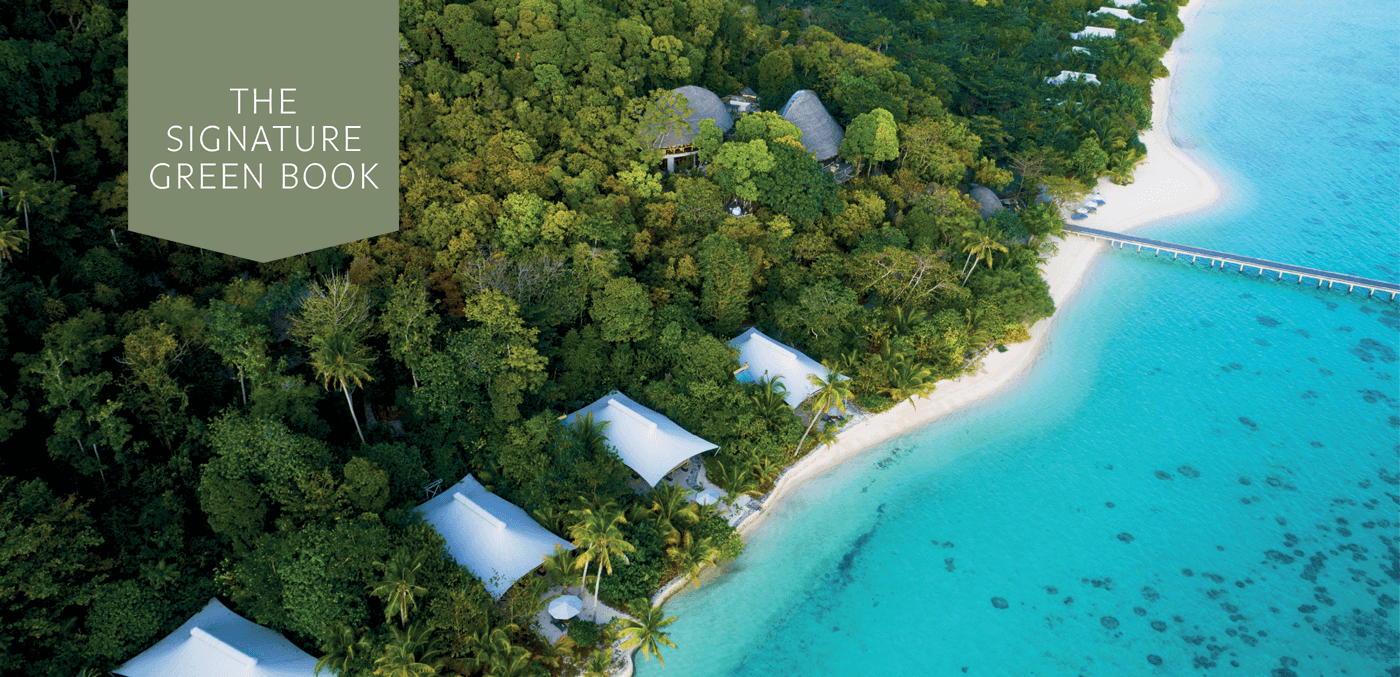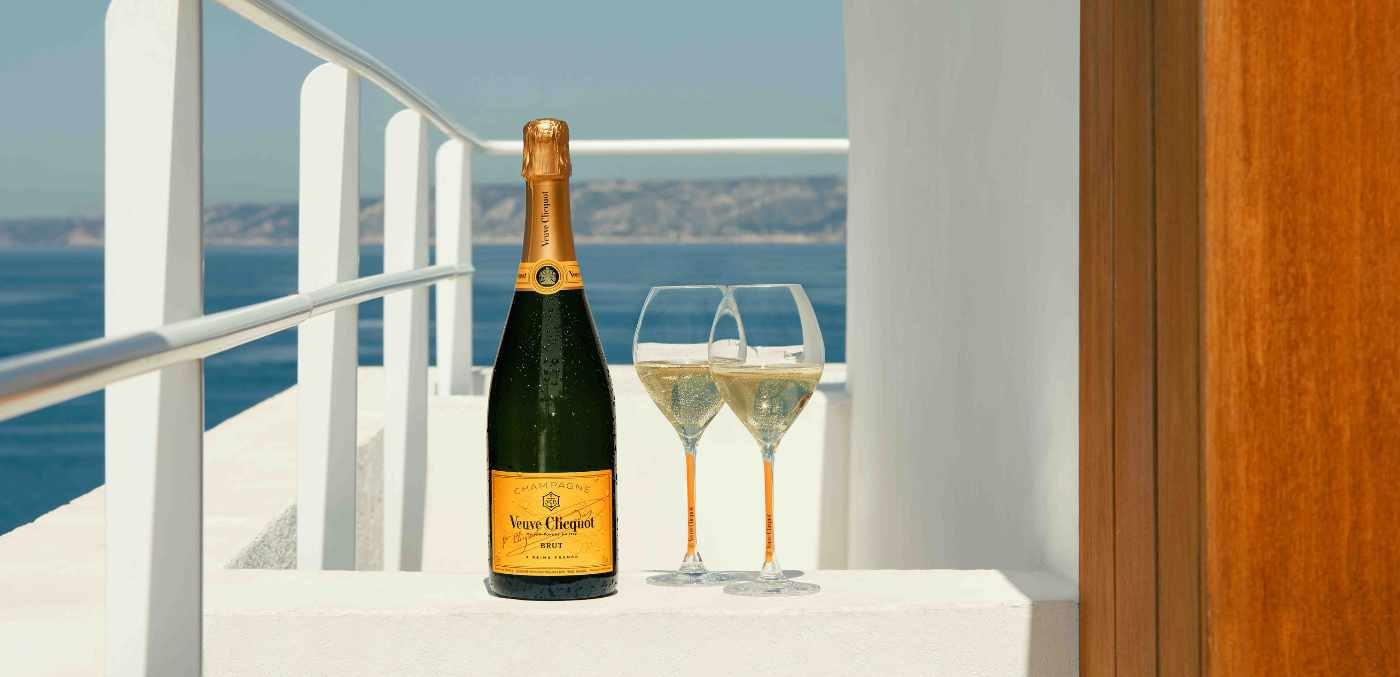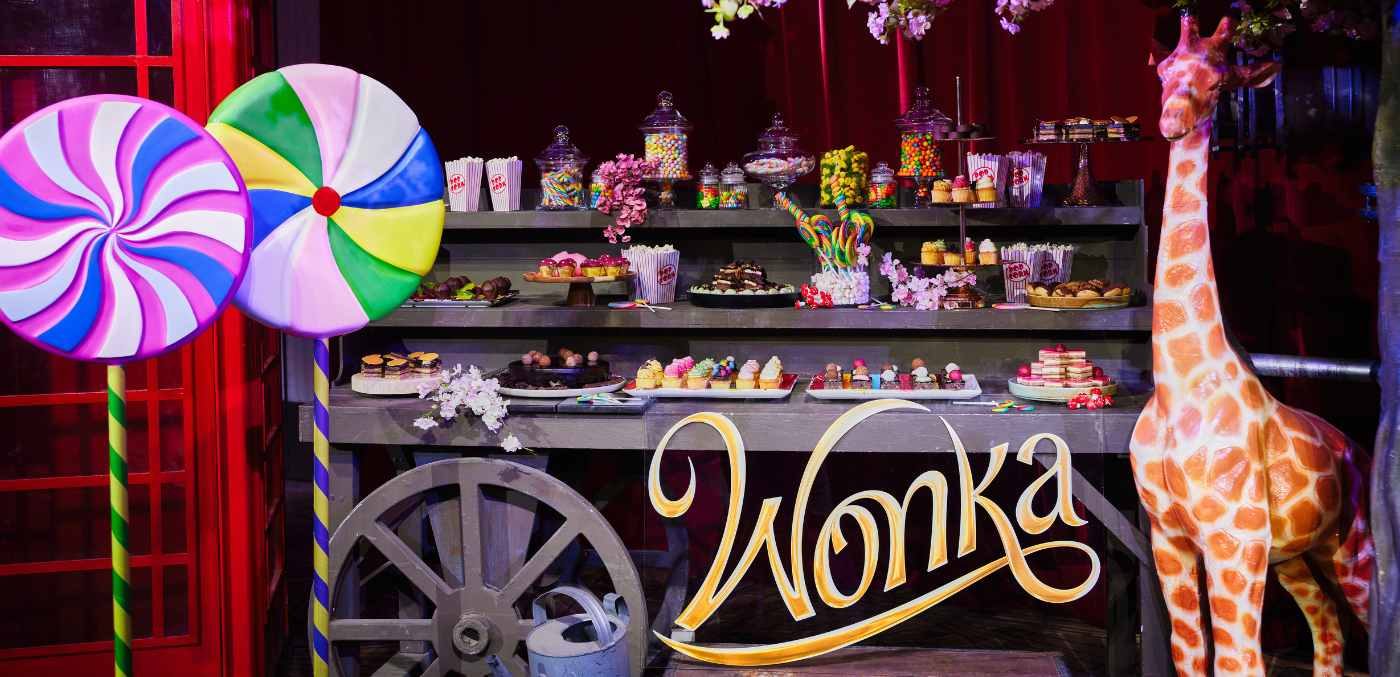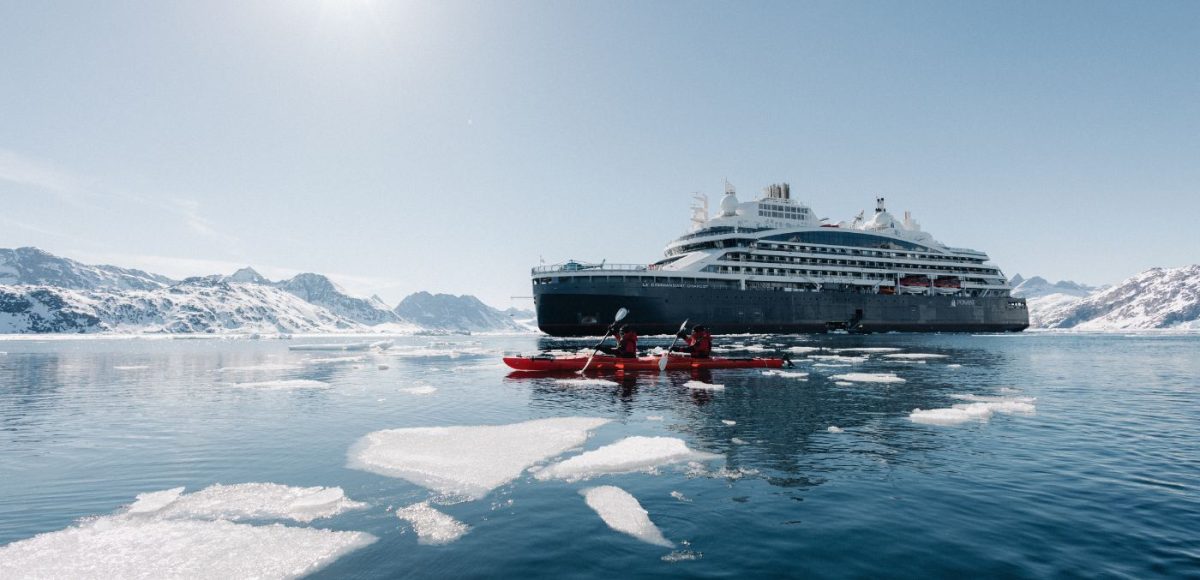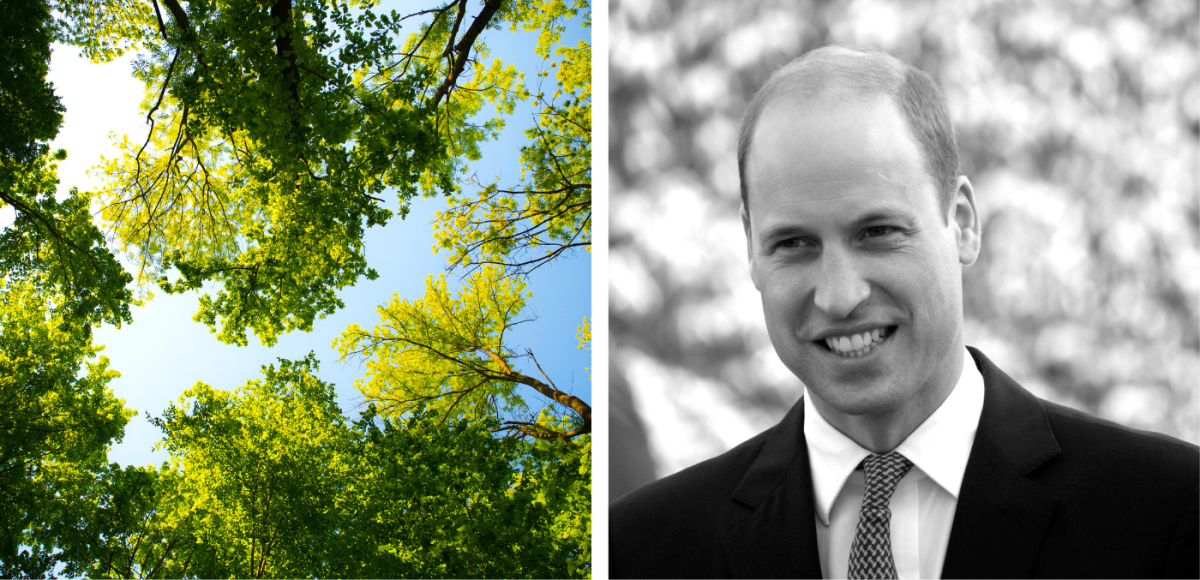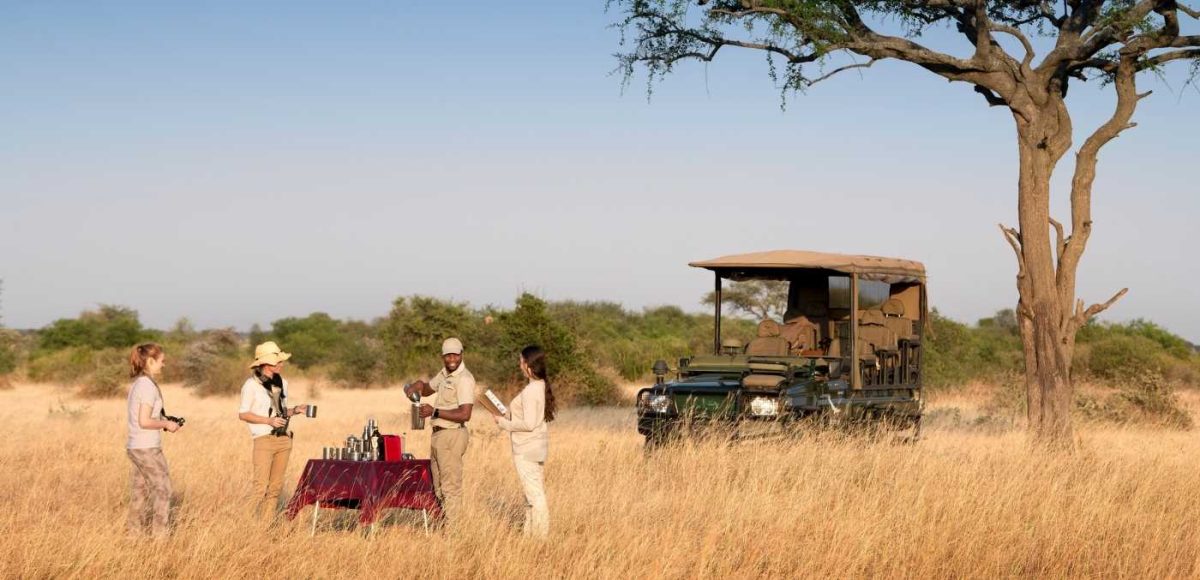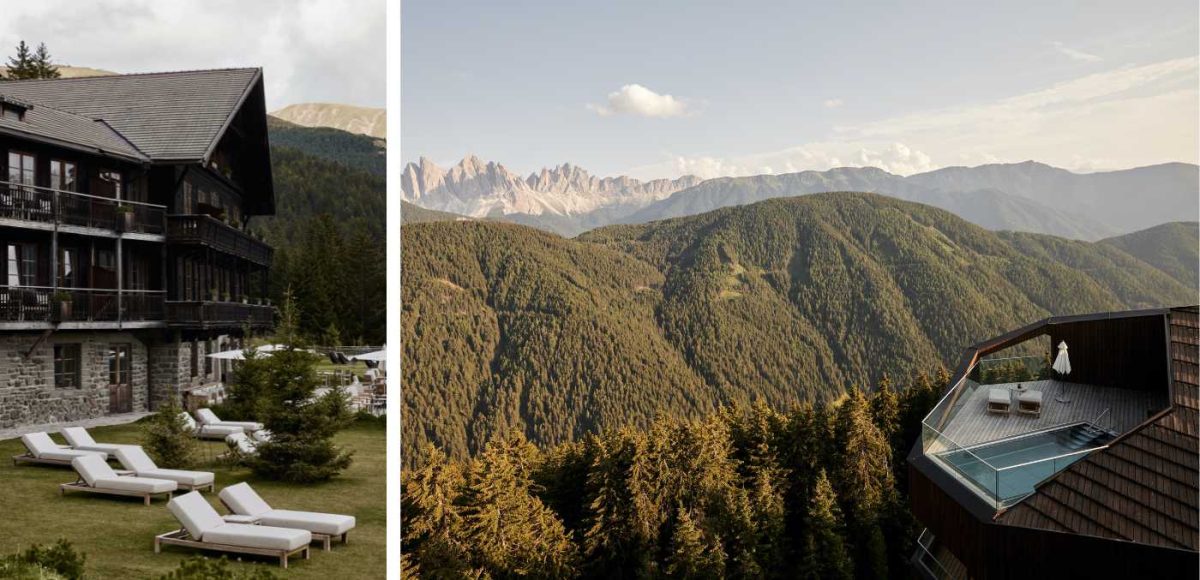Conscious travellers looking to tread lightly while seeing the world in style will want to use our Green Book as their bible when it comes to destinations, hotels and tour operators protecting the planet.
With the environmental impact of tourism in the spotlight, destinations prioritising sustainable travel options are getting the attention they deserve.
Scandinavia has set the benchmark for sustainability for decades, with Copenhagen on track to be carbon neutral by 2025. Norway can proudly declare that 95 per cent of its energy hails from hydropower, and Finland takes home the award for having the freshest air in the world. And bravo to Nuuk, the capital of Greenland, for being the first capital city to be certified under EarthCheck. And Vienna, the capital of Austria is the World’s Greenest City.
The 2020 Environmental Performance Index, ranking countries on their efforts to preserve and protect the environment, puts Denmark at the top of its list, followed closely by Luxembourg and Switzerland. The 2021 Best Countries for Green Living ranking recognises this pocket of Europe as a sustainability standout, too, with Japan, New Zealand and Canada also making its top 20. Meanwhile, Bhutan and Suriname are the only two countries in the world to have achieved carbon neutrality and are actually carbon negative.
Jungle rhythms
The Central American country of Costa Rica may be small in size, but it’s big in diversity. It covers just 0.03 per cent of the Earth’s surface, yet is home to five per cent of the world’s wildlife – half a million species of plants and animals and 922 species of birds thrive amid volcanoes and waterfalls. The government has come to recognise its ecological bounty, and has declared around 25 per cent of its territory a national conservation zone. On top of this, it already generates more than 98 per cent of electricity from renewable sources, and has ambitious goals to become carbon neutral in the near future.
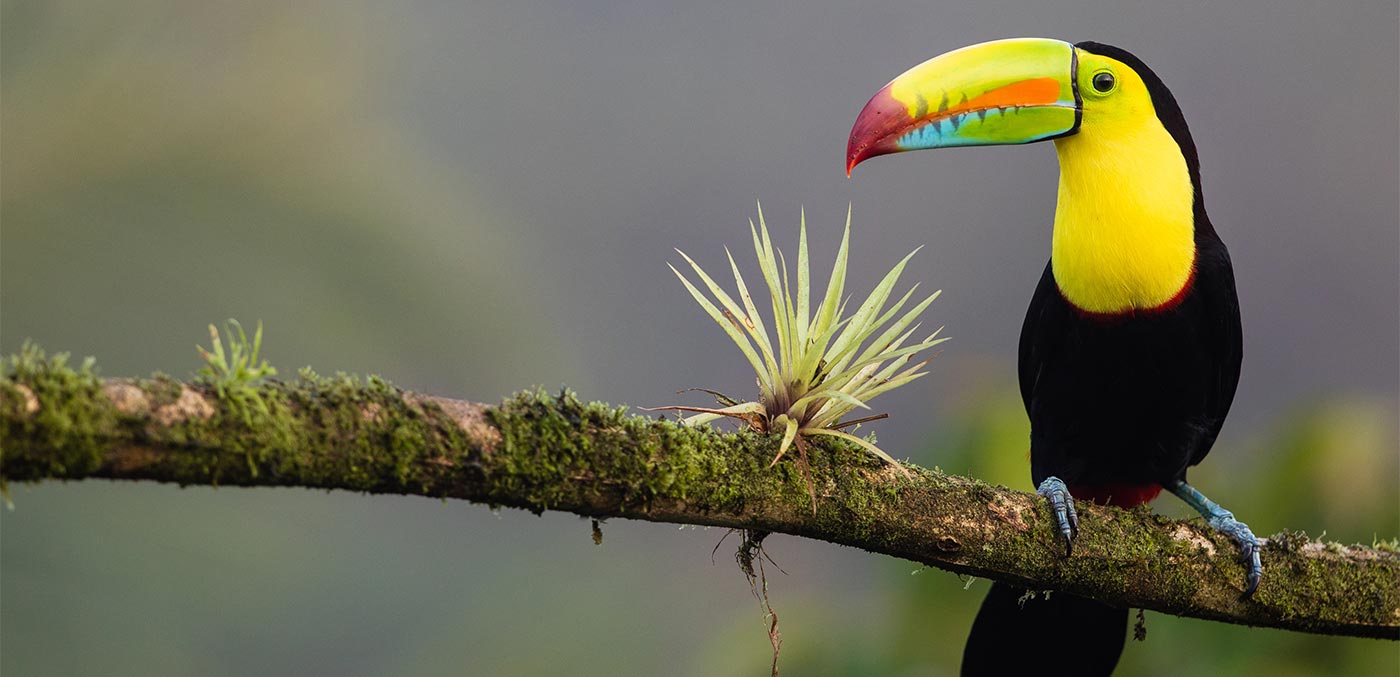
Light footprints in Madagascar
Accessible only by helicopter, the remote resort of Miavana is situated on a secluded stretch of sand on Nosy Ankao, a private island off the northeast coast of Madagascar. The environmentally conscious haven is the newest offering from Time + Tide, a foundation that contributes more than $300,000 per year to community, health, education and wildlife conservation. A full-time environmental team trained in wildlife monitoring and reforestation means that the property has the opportunity to truly impact conservation efforts across the island.
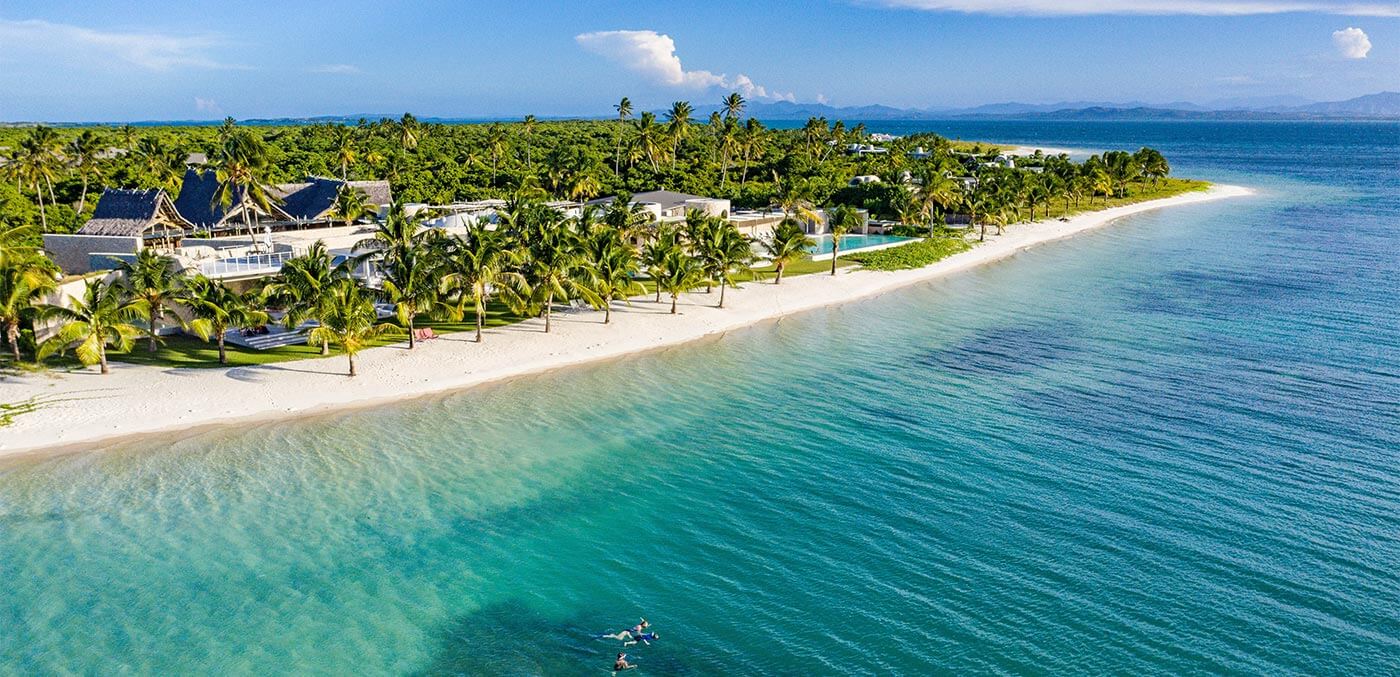
Sea changes
‘Success needn’t compromise sustainability’ is the mantra of Virgin Voyages founder Sir Richard Branson. He walks the talk. From day one of operations, his new cruise line has been carbon neutral, offsetting all emissions in a global first for the industry. Innovative tech transforms heat from ship engines into clean energy, while wastewater is purified into drinking water. Design features like LED lighting and tinted windows reduce the overall carbon footprint; single-use plastics are a no-go; and there’s extra thought put into consumption, from the elimination of wasteful buffets to serving sustainable and ethically sourced produce and using clever techniques to reduce and dispose of waste.
Aman for all seasons
Aman’s hotels and resorts occupy palaces, private islands and mansions. Yet you’d never know they were there – the company ethos has always been to create upscale retreats that blend seamlessly into their surroundings. Aman-i-Khás in India boasts a 1,500-square-metre organic fruit, vegetable and herb garden; and a solar power plant and planned hydroponic farm will reduce energy and water consumption. Meanwhile, at Amanbagh (also on the subcontinent), 80 per cent of produce used in the restaurant is grown in the resort’s substantial garden. aman.com
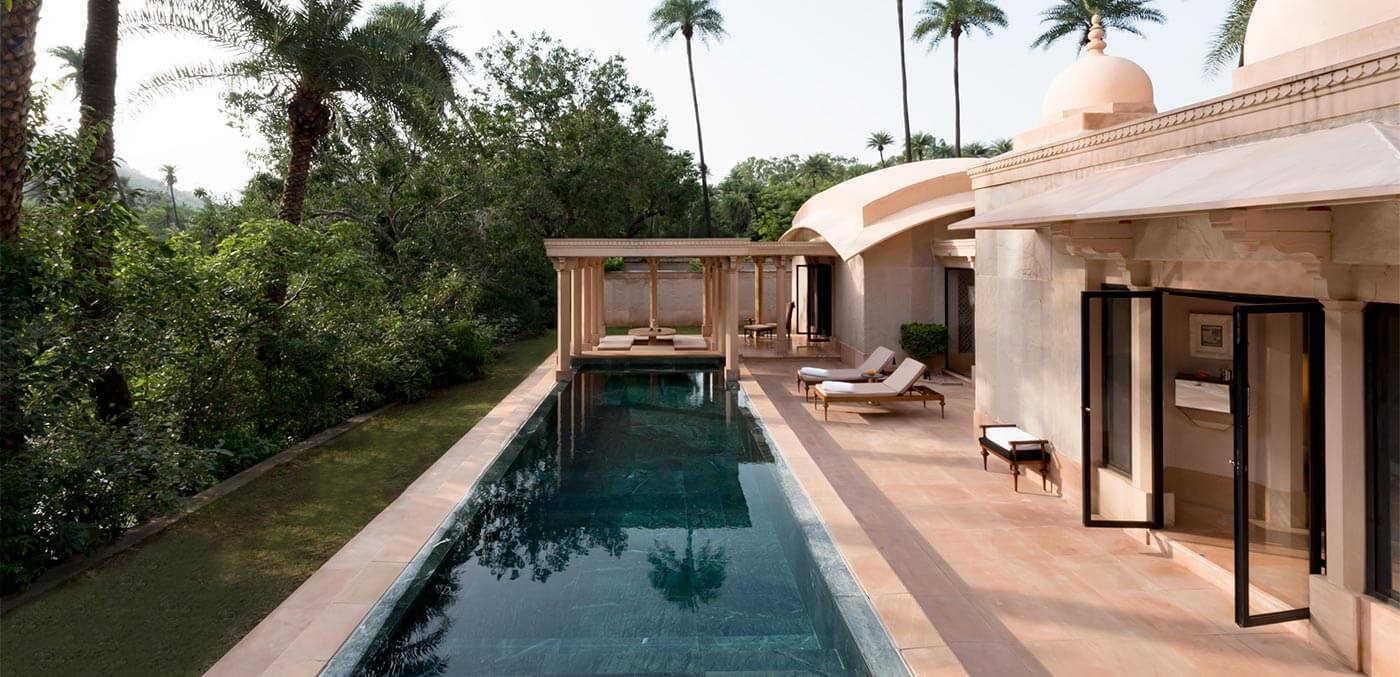
Private island pioneer
There are islands that claim self-sufficiency – and then there’s COMO Laucala, a dreamy drop of land in the Fijian archipelago that utilises 100 hectares to farm just about every item on its menus, both food and spa. Save for cheese and wine, the five on-site restaurants rely almost entirely on island produce, from tropical fruits and vegetables sprouted in nurseries, to raising livestock and sourcing line-caught seafood from local fishermen. Stay in one of 25 villas thoughtfully crafted from natural materials, including thatched roofs made from sago palms, and countertops, doors and handles crafted from local rain trees.
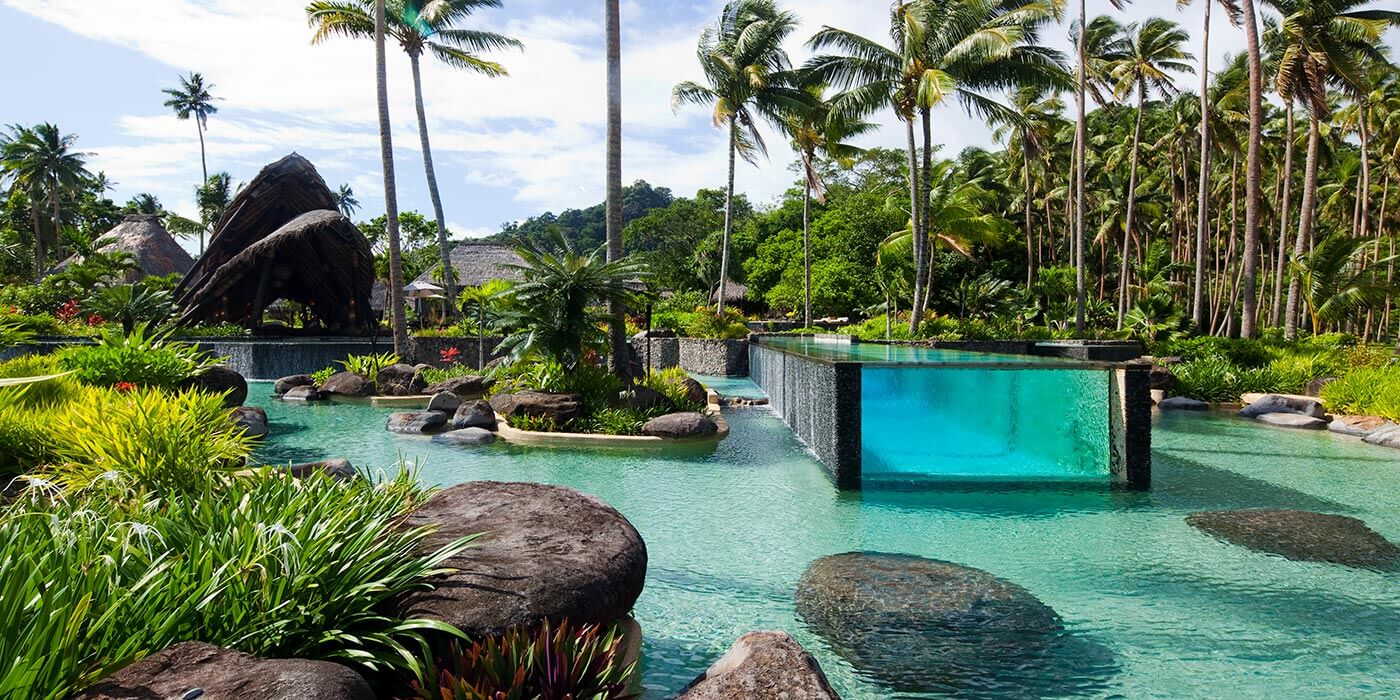
At one with nature
At Shinta Mani Wild, in Cambodia’s Cardamom Mountains, Bangkok-based architect and sustainability advocate Bill Bensley not only prevented the site from becoming a logging field, by outbidding other investors when it went up for auction, he also designed the camp to keep the jungle completely intact. This meant carefully choosing positions for its 15 raised tents to avoid disturbing vegetation and drainage (no trees were cut down during construction). He also worked to optimise natural light and airflow in villas to reduce energy use, much of which is generated by the camp’s own solar panels. In partnership with the Wildlife Alliance NGO, an on-site ranger station is dedicated to keeping the 2,000 hectares of forest in tip-top shape.
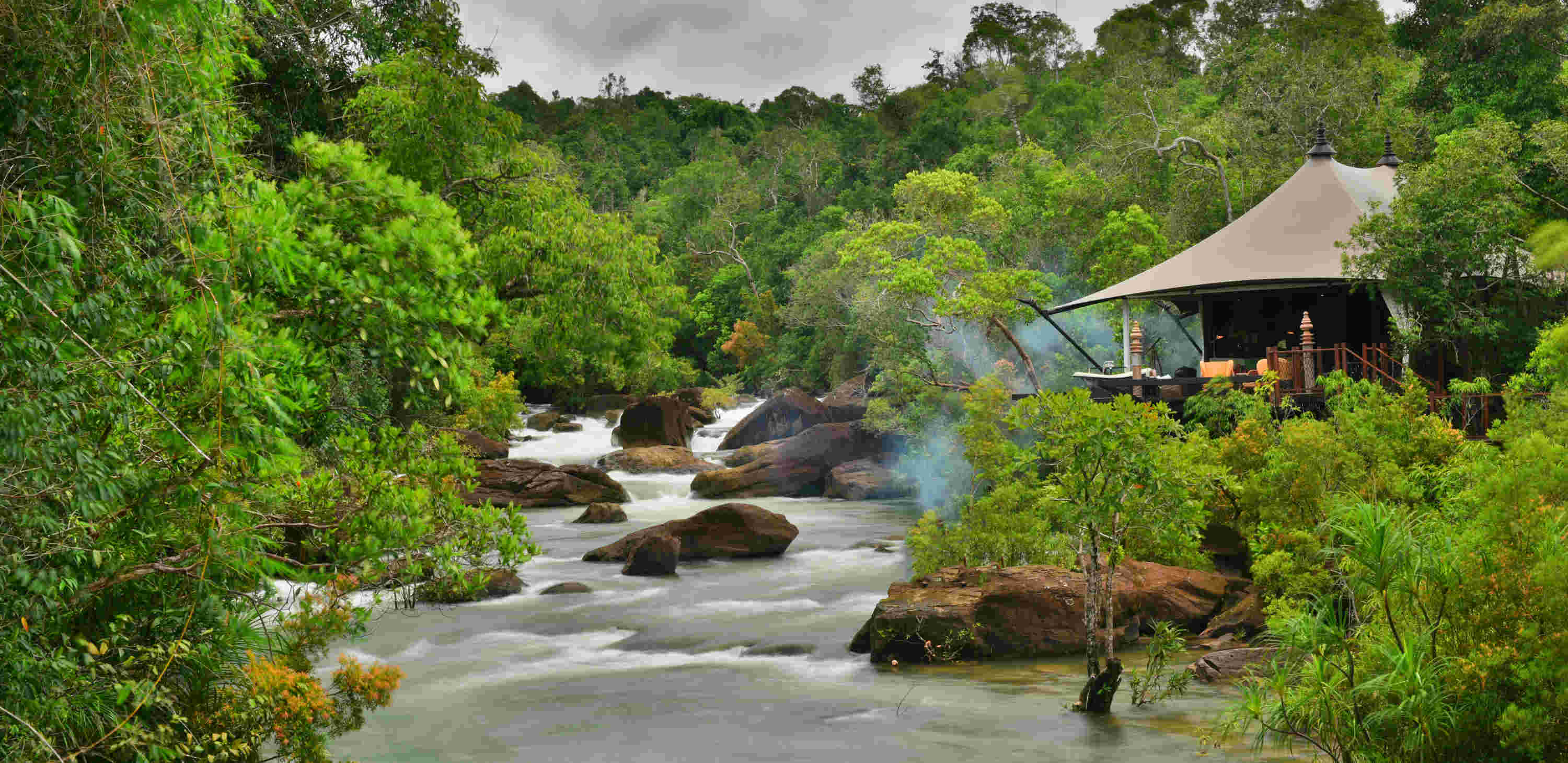
Responsible LATAM
LATAM Airlines is leading the way in the airline industry with a 30-year strategy for sustainable travel. Its ambitious targets include eliminating single-use plastics by 2023, sending zero waste to landfill by 2027, and being carbon neutral by 2050. The Global Corporate Sustainability Assessment recently recognised the airline’s efforts, naming LATAM the best performing airline for sustainability in the Americas and Europe.
Authentic Singita
Sustainability isn’t new at Singita, where eco-conscious hospitality, conservation and local community empowerment have been priorities since 1993. The brand’s 15 luxury lodges and camps in Rwanda, South Africa, Zimbabwe and Tanzania offer guests not just an unforgettable experience but also the chance to contribute to conservation initiatives and community empowerment programs.
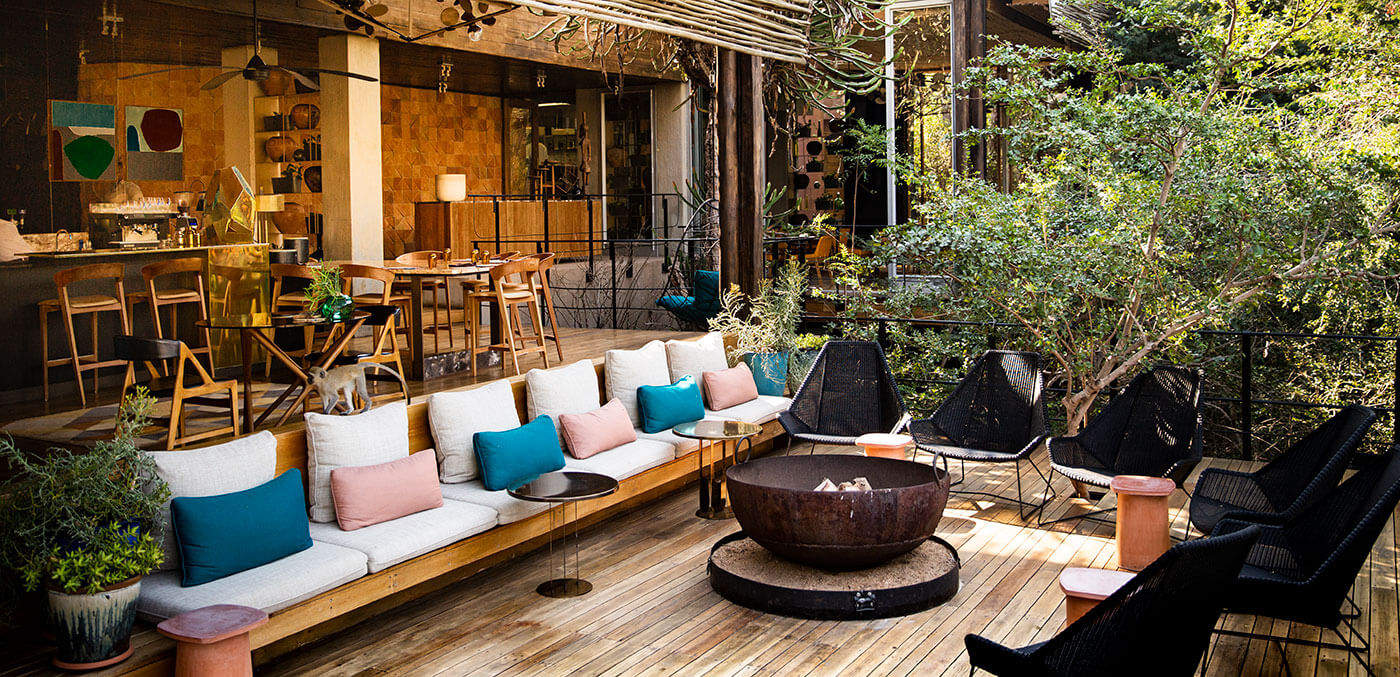
3 shows to watch
The Earthshot Prize:
Repairing our Planet
Available on Foxtel GO
Sir David Attenborough and Prince William team up to shine a spotlight on their Earthshot Prize. Their aim is to reward people around the world for trying to save the planet while exploring ways to make a difference and protect the environment.
Seaspiracy
Available on Netflix
This documentary explores how fishing industries impact the world’s oceans, while looking at various human impacts on marine life. Narrated and directed by British filmmaker Ali Tabrizi, it is a thought-provoking, if one-sided, glimpse into the fishing industry.
The Great
Green Wall
Available on iTunes, Google Play
Singer Inna Modja takes an epic journey across the Sahel region of Africa. There, the plan is to build a green wall of trees and vegetation to fight climate change and drought. Director Fernando Meirelles (City of God) creates a moving screenscape.
A self-sustaining desert stay
In Namibia’s barren Namib desert, Jack Alexander of Johannesburg-based Fox Browne Creative turned the 20-year-old andBeyond Sossusvlei Desert Lodge into a self-sustaining mini village. The original structures were given a sleek makeover using local rock, stone and sand, and fitted with solar panels to power rainwater harvesting tanks and water recycling systems. The lodge also supports a soup kitchen program for P.A. Schmidt Primary School, which has a current enrolment of about 970 children.
Get lost in Ios
Meander through ancient olive groves on the Greek island of Ios and you are most likely enjoying the sustainability efforts of the exclusive Calilo Resort – having bought a quarter of this pearl, its owners are committed to conserving 99 per cent of their land to combat overtourism. As well as planting 60,000 trees, they saved 550 ancient olive trees destined to be sold for firewood.
Safeguarding biodiversity
Hidden in an ancient 2,500-hectare forest in South Africa, Grootbos Private Nature Reserve is located in one of the world’s ‘hottest’ biodiversity hotspots: the Cape Floral Kingdom. Many of the plants found here are of conservation concern (with 100 considered endangered), and 70 per cent found nowhere else on Earth. The Grootbos Foundation was established in 2003 to protect this meltingpot of natural wonder. The foundation is also trains and employs locals in vegetation management, alien plant removal and horticulture.
Forest flavour
On Costa Rica’s Papagayo Peninsula, the owners of Kasiiya Papagayo built low-impact bungalows so slowly that nature had time to grow around them. The seven structures are crafted from natural materials and can be dismantled swiftly, leaving no trace. There’s no single-use plastic (the straws are bamboo), there’s a waste water treatment plant on-site, and the golf buggies are electric.
A Gold Coast pioneer
The Marriott hotel group is accelerating its sustainability efforts. JW Marriott Gold Coast is a standout, switching to electric cars and LED lighting and enlisting gardening help from 80,000 worms. The worms transform hotel waste and boost kitchen garden growing power. This enables chefs to deliver fresh, nutritious produce to dining tables.
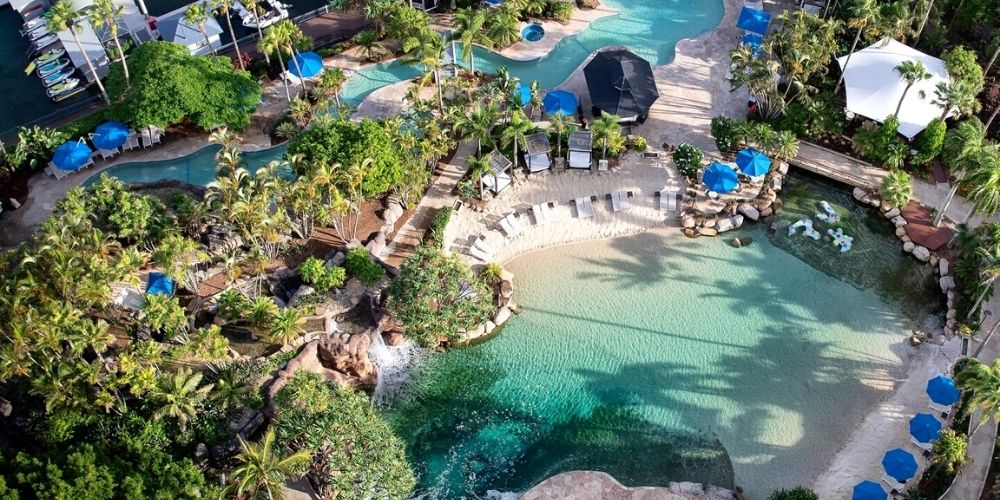
E is the word
As electric vehicles take over the world’s roads, a few countries stand out when it comes to providing e-friendly facilities. Monaco not only has an extensive fleet of public access e-bikes but also rentable e-cars and e-boats, with charging stations dotted around the principality. An array of European nations are following suit, from Norway and Switzerland to the Netherlands and Croatia.
Diving to make a difference
Once the site of a shark finning camp, Misool’s off-grid diving resort in Indonesia’s Raja Ampat funds a private marine reserve larger than New York City. Raja Ampat is an epicentre of marine biodiversity, with 1,500 species of fish and 600 different types of corals. The Misool Marine Reserve protects coral reef ecosystems and mangrove forests that act as nursery grounds for juvenile reef fish. The resort funds the reserve’s 18 rangers, who ensure the area stays in pristine condition.
Dive right in
Certified by WWF Signing Blue as a five-star destination for responsible marine tourism – the first resort in Indonesia to receive this distinction – Bawah Reserve is an eco pioneer. The resort works with local communities to conserve mangroves and manage fishing and waste. Bawah’s marine biologists also educate guests during snorkelling and kayaking trips.
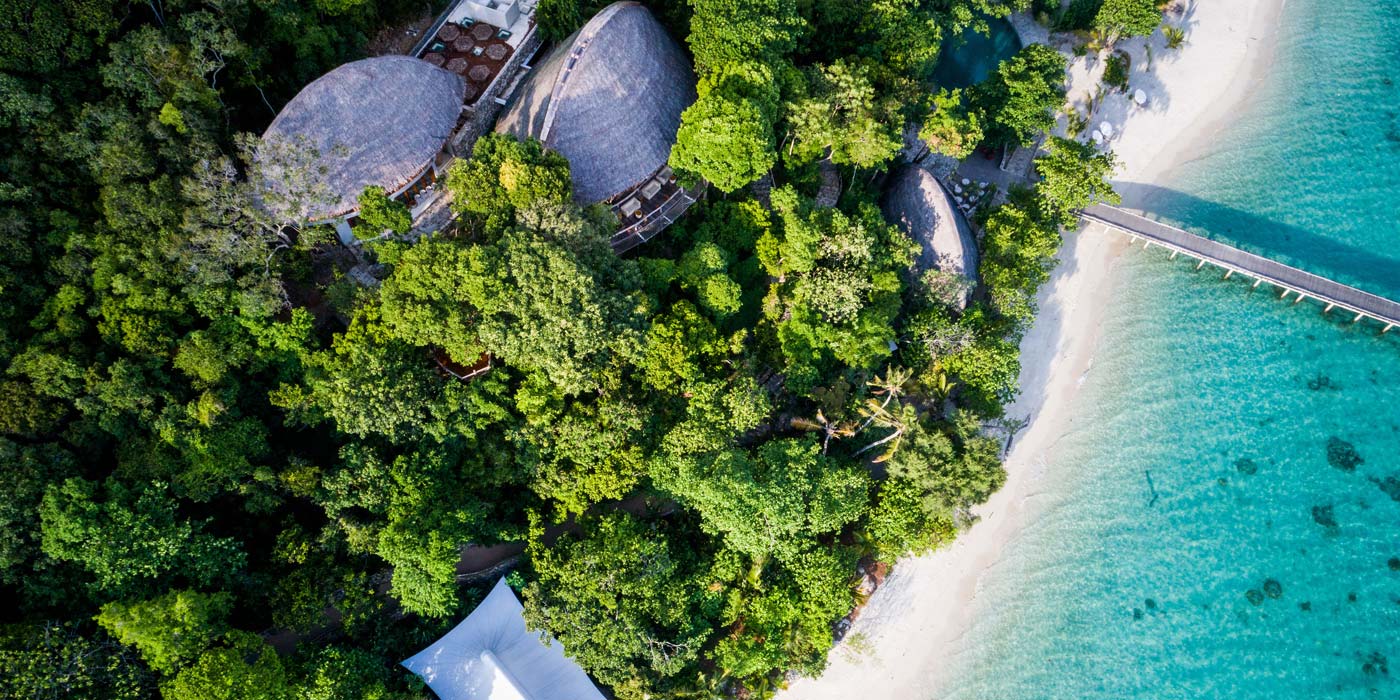
3 books to read
Underwater Wild
Craig Foster & Ross Frylinck
Academy Award-winning documentary My Octopus Teacher captivated audiences around the world when it debuted in 2020. This new book is an immersive journey into the underwater world that inspired it. It is written by the doco’s director (Foster) and the co-founder of the Sea Change Project (Frylinck).
Treading Lightly, The Hidden Wisdom of the World’s Oldest People
Karl Erik Sveiby & Ted Skuthorpe
Published in 2006, this is a must-read on taking our environmental cues from Australia’s Indigenous communities, who managed to protect native flora and fauna in a sustainable way for more than 60,000 years.
There is No Planet B
Mike Berners-Lee
The environmental issues facing the planet can be overwhelming. And understanding how you, as an individual, can make a difference may seem unachievable. What should we do first? Do we need to become vegetarian? How do we fly in a low-carbon world? This book attempts to provide tips and advice.
Island idyll
The Godfather actor Marlon Brando had a soft spot for French Polynesia – and the environment. Here, at The Brando resort on Tetiaroa, all 35 luxurious villas have lights fuelled by a coconut oil power station; the surrounding seawater facilitates air-con; design uses recycled and renewable components; and the entire property is carbon neutral.
Eco longitude
Australia’s most glamorous glamping operation, Longitude 131° is known for its collection of luxury safari-style tents boasting unparalleled views of Uluru-Kata Tjuta. Each tent floats above the desert floor. This allows flora and fauna to flourish undisturbed, with natural fibres used to enhance thermal and acoustic insulation. Solar power heats the water.
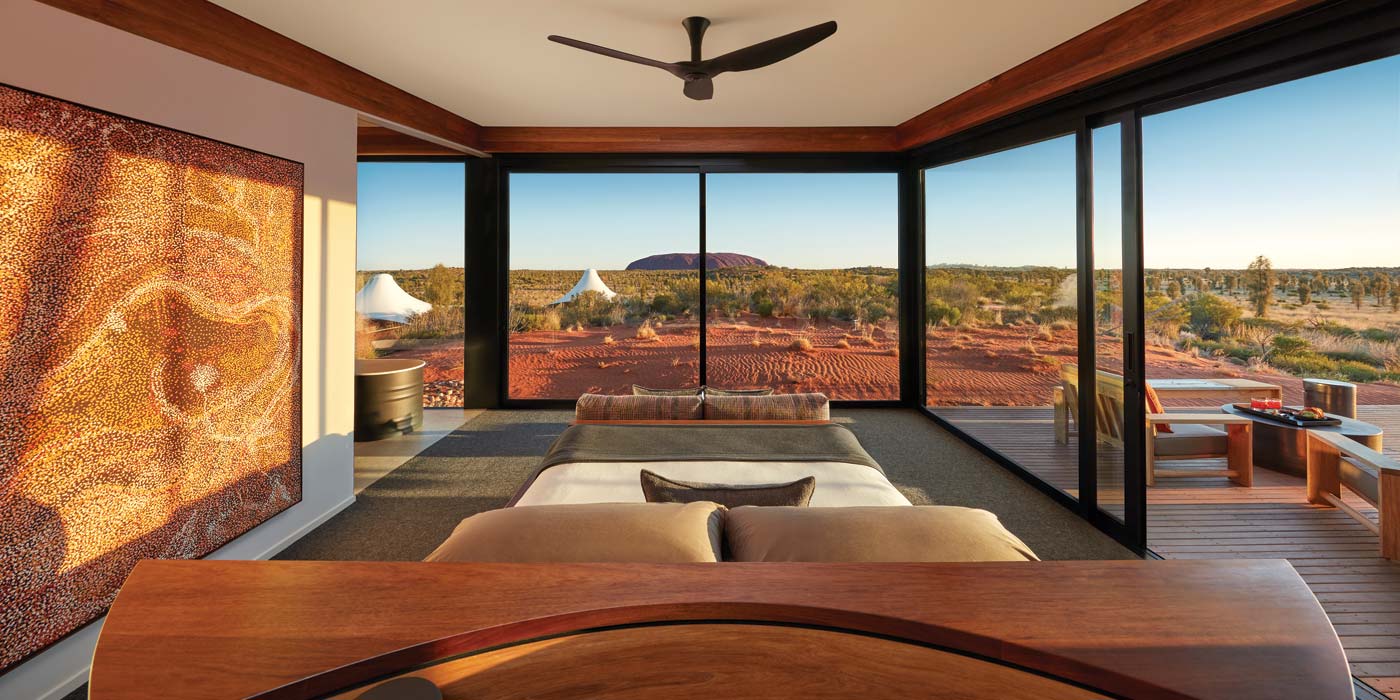
Pack for a purpose
Want to travel in a sustainable way? Start with packing your bag. Think reusable water bottles, BYO cutlery, a cloth shopping bag and marine-friendly sunscreen. The Pack for a Purpose website lists supplies needed around the world, whether school books for kids, clothing or grooming products.
Lovely and local in Tuscany
On 300 self-sustaining acres in the Tuscan countryside, the staff of five-star Borgo Santo Piedro hotel and estate milk sheep to make ricotta and pecorino, collect eggs and honey, tend to vegetable gardens and harvest Sangiovese vines to produce the year’s offering of fine wine. A field of alpacas even provides wool for the blankets and shawls found in each stunning suite.
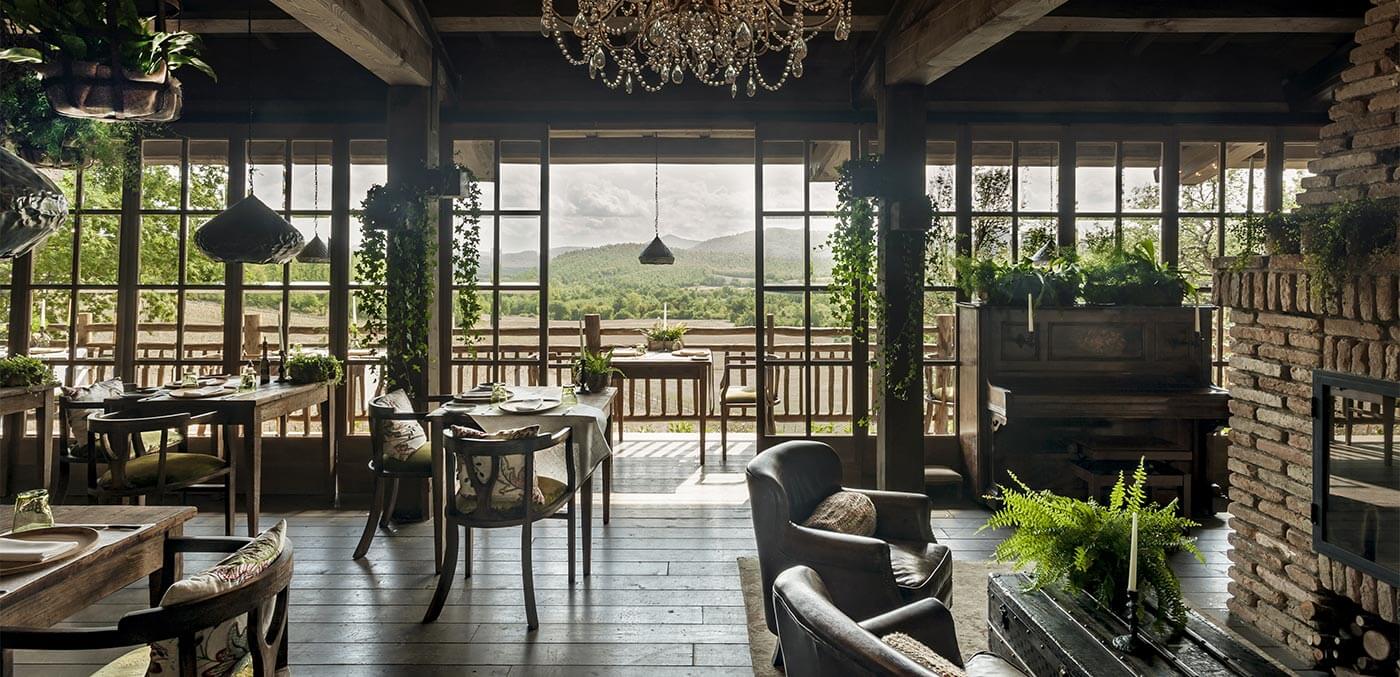
South Pacific saviours
Want to help save South Pacific reefs? At Fiji’s Jean-Michel Cousteau Resort and Likuliku, guests can assist marine biologists in repopulating struggling ecosystems. And at Moorea in French Polynesia, you can join Coral Gardeners’ divers to nurture the underwater world.
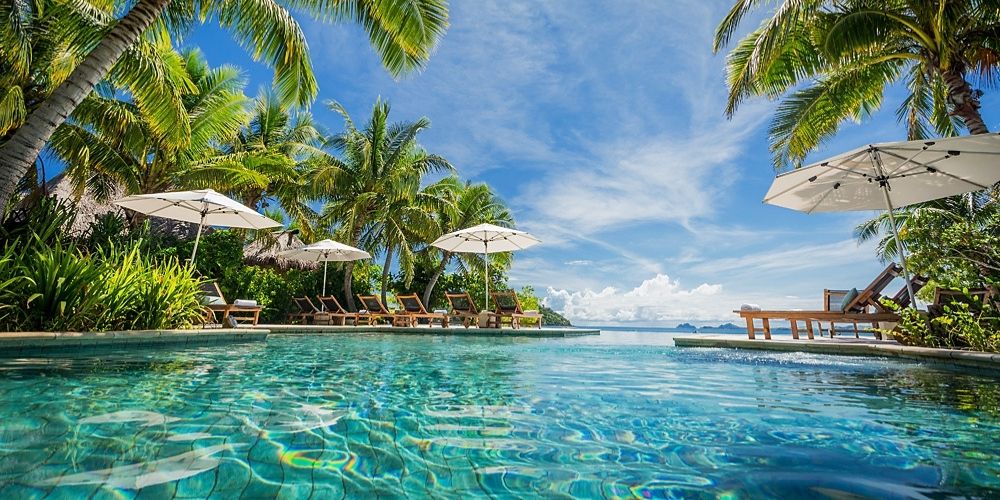
Suite dreams
When you check into a room called the Earth Suite, you know it has exacting environmental standards. Welcome to Denmark’s Villa Copenhagen, made entirely from recycled materials – from the bricks and masonry to the furniture and mattresses. Designed by Danish architect Eva Harlou of Earth Studio, accommodation doesn’t get much more sustainable than this.
Life in the slow lane
At Gilberton Outback Retreat, a working cattle station and nature refuge in Far North Queensland, seriously comfy lodges and alfresco tubs deliver views for days. All activities here focus on native flora and fauna. They highlight the fragility of the landscape but also the owners’ initiatives to protect it.
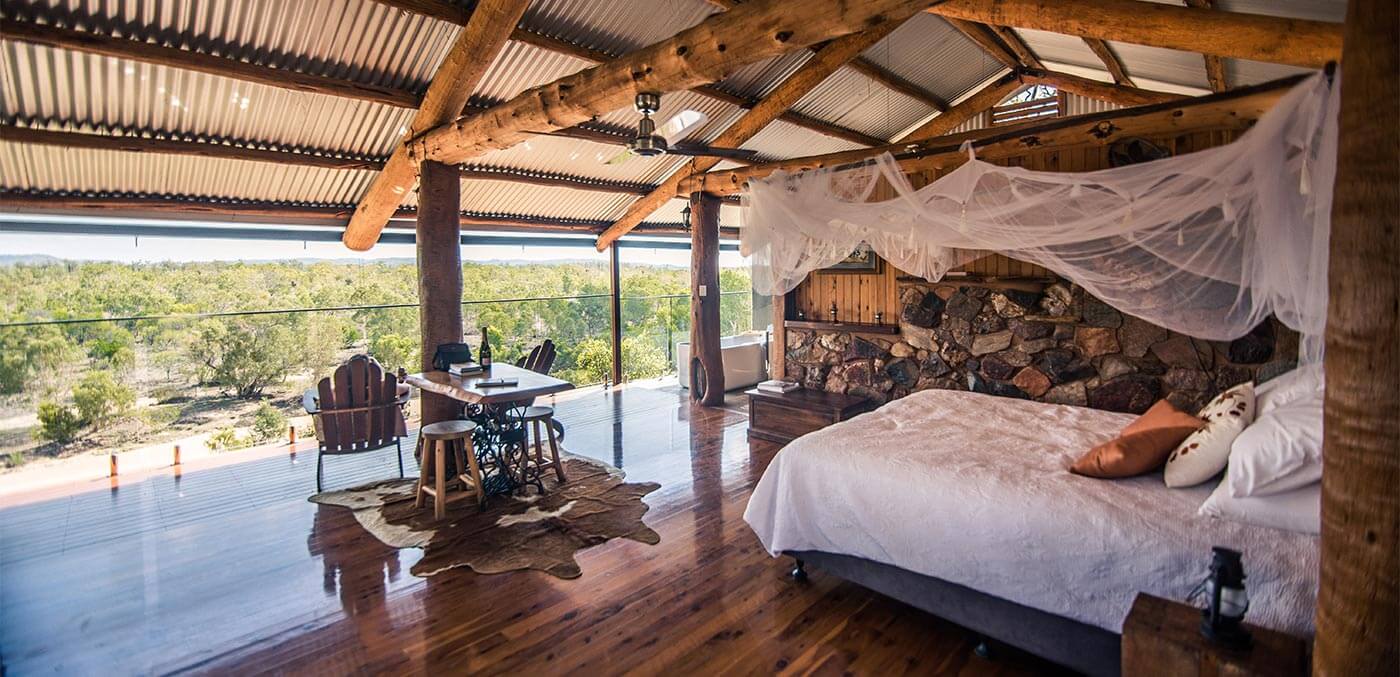
3 podcasts to listen to
Sustainababble
Available via Spotify
A light-hearted weekly podcast with in-depth yet entertaining interviews. Sustainababble untangles confusing environmental concepts and policies, while exposing examples of greenwashing.
How to Save the Planet
Available via Apple Podcasts
This Friends of the Earth podcast doesn’t shy away from the big topics – think environmental racism, eco-anxiety and fracking. But it also shines a spotlight on positive changes, and how you can be a part of the movement.
Jane Goodall: the Hopecast
Available via Audible & Spotify
Each episode highlights Dr Goodall’s incredible work through the Jane Goodall Institute. The focus though, is on influential people in business, policy and NGO industries looking to make the world a better place.
Ride the rails
Winning Lonely Planet’s ‘Best Sustainable Train Journey’ award for 2021, the Rocky Mountaineer has more to offer than mesmirising rail journeys through spectacular Canadian and American scenery. In 2019, the company added 10 new GoldLeaf rail cars to the fleet. They have energy efficient enhancements including dishwashers that use 20 percent less water than previous models. In addition, in collaboration with Trees Canada, a tree is planted to honour the employment anniversary of each team member. As a result more than 13,500 trees have been planted since 2008. The company supports two important local causes: reducing hunger, and protecting wildlife by partnering with Critter Care Wildlife Society to support the treatment, care and release of sick, injured and orphaned animals in British Columbia.
Rethinking waste at Soneva Fushi
Sonu Shivdasani was ahead of his time when he launched the ‘barefoot luxury’ Soneva brand in 1995. The sustainable travel brand focused on offering guests the kind of holiday that unites style and sustainability in equal measure. The brand was among the first in the world to abolish plastic straws. Maldivian retreat Soneva Fushi banned them as far back as 1998, then followed up by halting bottled water in 2008, saving more than 1.5 million plastic bottles since the initiative began.
This dreamy retreat also recycles 90 percent of waste on-site through a robust management strategy; food scraps are composted to create soil for vegetable gardens; styrofoam packaging that arrives with imported food is transformed into lightweight blocks used in construction; wine bottles are upcycled at the Soneva Glass Studio and turned into art; and the Soneva Maker Programme remoulds excess plastic into products like flower pots, bowls and children’s toys.
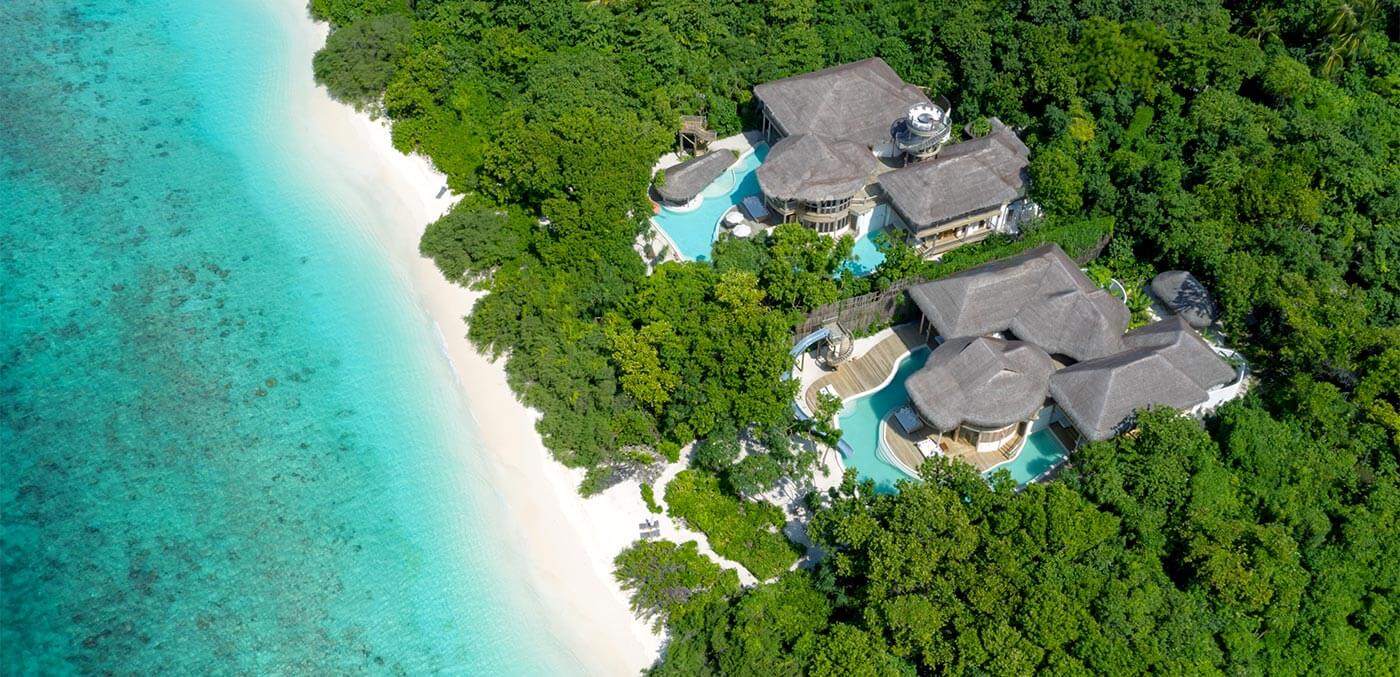
Recycling and cruising go hand-in-hand
Ponant has been recognised for the second successive year with Green Marine certification. They are the first international cruise company to do so. Moreover, the Ponant Foundation has aligned with the Argentinian-based Garrahan Foundation, which collects and resells aluminium cans and plastic bottle caps, donating recyclable waste accumulated onboard its ships on its return from cruises to Antarctica. Funds generated by the recycling program are used to purchase and repair equipment at the Garrahan Paediatric Hospital. Funds are also used to train health teams and help fund after-care homes for sick children and their families.
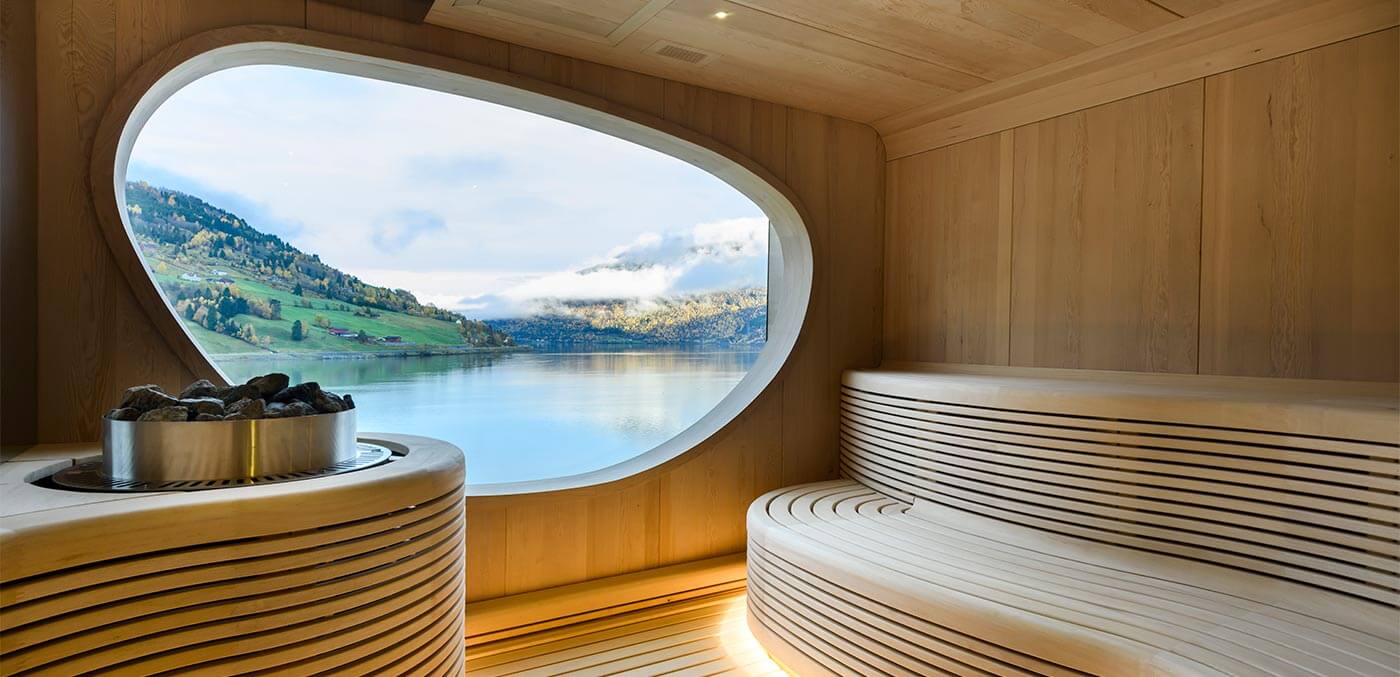
Raising the bar
Launched by G Adventures’ philanthropic founder Bruce Poon Tip in 2003, the Planeterra Foundation – a not-for-profit that helps communities around the world benefit from tourism – reached its target of supporting 50 social enterprise projects in 2019, five years before it expected to. It set a new target through Project 100: to support 100 social and environmental projects by 2020. In India, for example, it has partnered with Women with Wheels. The female-only chauffeur services ferries guests from Delhi airport. All wildlife-related itineraries have been crafted with experts from World Animal Protection, Jane Goodall Institute and the World Cetacean Alliance; while their child welfare policies have earned the company Friends-International ChildSafe certification.
The future of fuel
Hurtigruten has invested heavily in green technology, including battery solutions. The Norwegian company’s next step: powering cruise ships with liquefied biogas (LBG). LGB is fossil-free, renewable gas produced from dead fish and other organic waste. In doing so, Hurtigruten will be the first cruise line to power ships with fossil-free fuel. To put the initiative into perspective: there are more than 300 cruise ships in the world, many of them running on cheap and polluting heavy fuel oil – the daily emissions from one single mid-sized cruise ship can be equivalent to one million cars. This solution also eliminates the emissions of sulfur, NOx and particles. Other milestones include being the first cruise line to ban single-use plastic, and the introduction of the world’s first hybrid-electric powered cruise ship, MS Roald Amundsen.
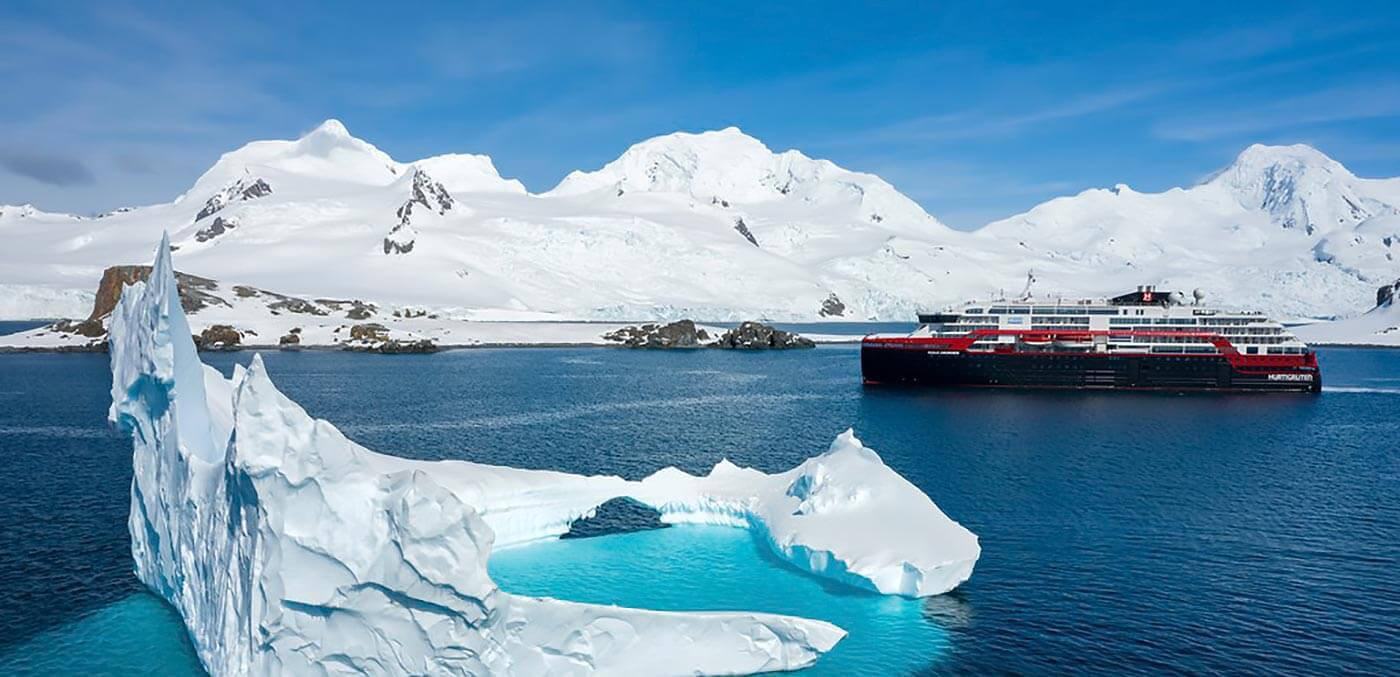
This sustainable travel article originally appeared in volume 40 of Signature Luxury Travel & Style magazine. Subscribe to the latest issue today.
Lead image: Bawah Reserve







